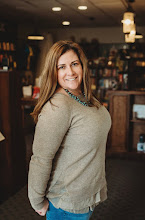My aging
dog, Bally, woke me early this morning. After taking care of her needs I opened
my computer and turned to Twitter. Scanning the tweets I quickly realized that
Paul Hankins and Donalyn Miller were having one of “those” conversations again.
Those conversations being ones that make me scan back in the archives to see
every tweet they’ve shared on this topic because they are all little gems of
brilliance.
The conversation centered around programs, specifically reading programs. Donalyn had tweeted last night that she was sick of costly reading programs and just wanted kids to read. And then they began discussing costs. Think about it, how much do some districts spend on:
· Basal programs
· AR/ Reading Count Titles
· Licensing fees
· Trinkets as rewards for reading
· Other items?
Here’s a
crazy novel thought – what about if we put that money towards books? Or, as
Donalyn mentioned, a librarian? I have a feeling that you’d see more payoff
with that type of spending. And I still firmly believe you can tell what a district
values by where they put their money. But looking at this conversation today,
it isn’t only where you put your money but what you invest that money in.
Because a district spending money on these items above might be investing in
reading but, in my opinion, they won’t get the same payoff I see in my room. My
money is invested in books.
I wrote
last week about the five essential elements to my reading classroom. There are
many ways I am sure we could measure the growth of my students, but I don’t need
those tests. Friday morning my students were gathered around me and we
discussed a reading lesson. Then I shared that I was heading to Anderson’s Children’s
Literature Breakfast on Saturday. Faces swiveled in my direction. Would I be at
the bookstore? What books would I purchase? Could I get more graphic novels?
Fantasy? Picture books? Would I bring the books in Tuesday morning? All morning
long I had kids slipping me notes with titles or suggestions as to what books
to look for. As I drove up I called my house to make sure my boys got home. My
seven-year-old grabbed the phone from his older brother. He told me about his
day and then he asked if I was going to “John’s bookstore.” (The John being the
infamous John Schumacher, or Mr. Schu.) I said I was. He paused and then said,
“Will you buy me some more books?” Absolutely.
We don’t
need to spend thousands of dollars on programs. We need to spend thousands on
books. Why are we turning to these basal programs? To these online quizzes? I
have wrestled with this question for the past week and I come to one answer.
They are easier. You can turn the page in the manual and your lesson is there.
You don’t have to pull, to create your own. For the quizzes – you don’t have to
conference. You don’t have to know the book. So I get it, they are easier. But,
is that really what we want?
For me
the answer is easy. I want the freedom to teach the lessons I know my students
need – not what is next in the scope and sequence. I don’t want to teach the
same lessons at the same time as the teachers at my grade level, unless we
somehow now have the exact same students. I want to be able to pull in real
literature, articles, blog posts, and share them with my students. I want to
rush in to see them in the morning and tell them all about the book I stayed up
late reading – and I want them to do the same.
Teaching is an art and we are the artists. We shouldn’t let these programs tell us what to do when we know what our kids need. They do not need another scripted program. They do not need another ten-question quiz that still doesn’t get to the heart of what the book was about. They need us. They need books. They need time to read. That is my program. And reading Donalyn and Paul’s tweets this morning – I know I’m not alone with that belief.












